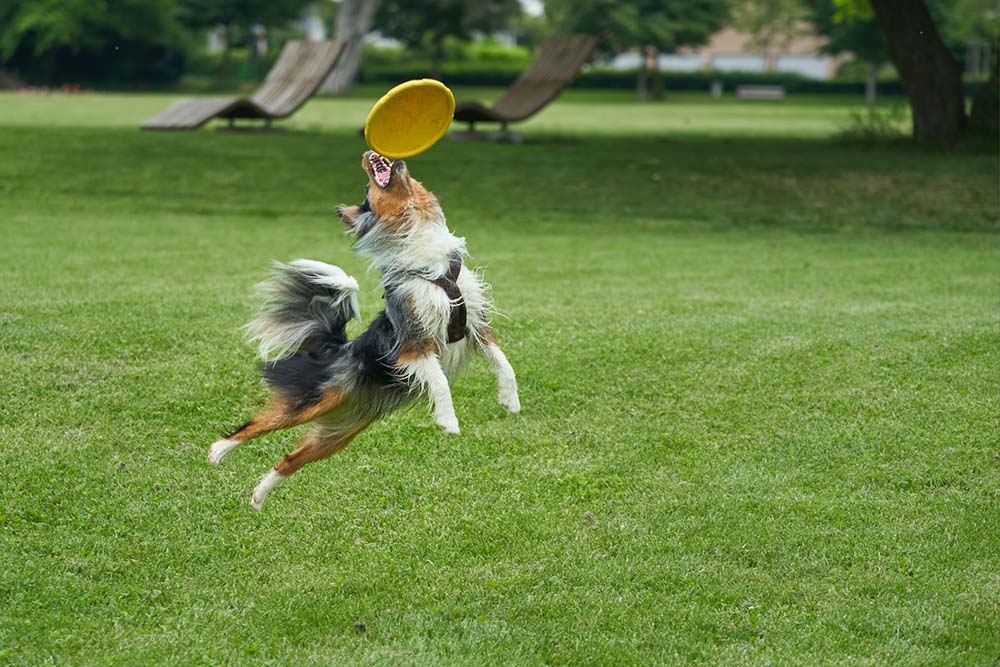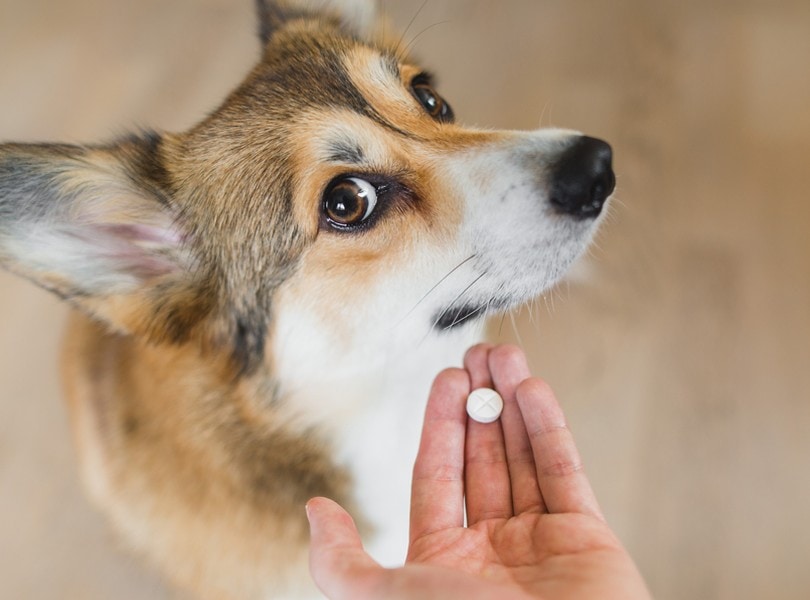
Click to Skip Ahead
While giving your dog Benadryl to keep them from bouncing off the walls might seem like a no-brainer, the truth is that administering this medication to calm your crazy canine is in fact a no-go.
The following article will discuss Benadryl use in canines, reveal veterinarian-verified indications for this common medication, and offer tips for what you can do instead to help calm your high-strung hound.
What is Benadryl?
Benadryl is the brand name of the medication diphenhydramine. Diphenhydramine is an antihistamine, a class of medications used commonly in humans to treat the signs associated with histamine release, such as sneezing or nasal congestion associated with allergies. In addition to the treatment of allergy-related symptoms, diphenhydramine is also used in humans for the treatment of nausea, vomiting, insomnia, and allergic reactions.
What Conditions Are Benadryl Used to Treat?
Side Effects of Benadryl Administration
Side effects of diphenhydramine administration tend to be mild, with sedation or drowsiness noted most commonly. While this side effect is noted frequently, most animals will develop a tolerance to this effect and will not get as drowsy when given the medication as time goes on.

However, additional side effects may be noted, including:
Severe side effects, such as increased body temperature, tremors, and seizures have also been documented in dogs exposed to toxic doses of diphenhydramine.
The 4 Reasons Why You Should NOT Use Benadryl to Calm Down Your Dog
Over-the-counter supplements or medications should always be given with the guidance of your veterinarian; it is NEVER recommended to administer human medications, such as diphenhydramine, without first consulting with your veterinarian. While diphenhydramine use in canines may produce sedation, it is not generally recommended for this sole purpose for the following reasons:
1. Diphenhydramine will not address underlying anxiety
While diphenhydramine may cause drowsiness or sedation, it will not address underlying behavior issues, such as anxiety, fear, or stress that may be contributing to a loud or hyperactive dog. Working with your veterinarian, or a veterinary behaviorist may help to identify specific behavior issues that can often improve with appropriate treatment.

2. Medication use is not recommended for the management of a high-energy dog
Young adult dogs, as well as specific dog breeds like the Border Collie, Labrador Retriever, or Australian Shepherd, may be extremely energetic. While a “quick fix” in the form of a pill used to calm these canines may sound desirable, diphenhydramine is likely to be ineffective in reducing the energy level of these highly-active dogs, and does nothing to address the physical or mental needs of an active canine.
3. Diphenhydramine may be contraindicated for certain dogs
This medication should not be administered to dogs with a known allergy to diphenhydramine, as well as those that are undergoing allergy testing. Diphenhydramine should be used cautiously in canines with glaucoma, hyperthyroidism, problems urinating, heart or liver disease, seizures, intestinal problems, or those that are pregnant or nursing.

4. Diphenhydramine is unlikely to produce significant or consistent sedation
Individual response to the medication in terms of the level of drowsiness or sedation often varies, and the sedative effects of diphenhydramine are likely to wane over time. Therefore, the administration of the medication for the sole purpose of sedation is likely to be ineffective.
The 3 Tips for Calming an Excitable Dog
If you have an energetic or excitable pooch at home, there will, understandably, be times when a calmer companion may be desirable. Instead of reaching for diphenhydramine, however, consider the following tips on how to help your crazy canine relax:
1. Increase their activity level
Increasing the amount of exercise your pup gets on a regular basis can provide an appropriate outlet for both their physical and mental needs. Walking, running, frisbee, flyball, agility, or time spent off-leash in a dog park or other safe space can all be great options to help tucker out a dog with boundless energy.

2. Environmental enrichment
Environmental enrichment has the potential to decrease stress and problem behaviors in canines, as well as provide the mental and physical stimulation they need for a happy, healthy life! Environmental enrichment options your dog may enjoy include puzzle or treat-dispensing toys, classical music, playtime with other canines, and structured classes—such as obedience or nose work courses.
3. Prescription medication
There are specific situations in which a calm, quiet canine is essential—such as the postoperative period after major surgery. If your pet is scheduled to have a surgical procedure and you are concerned about its recovery period, a discussion with your veterinarian can help determine whether a prescription sedative medication may be appropriate to help facilitate a smooth recovery.

Conclusion
In conclusion, while diphenhydramine has a variety of uses in veterinary medicine, it should not be used as a means of calming an excitable canine. If you have concerns regarding your dog’s energy level or behavior at home, discussing the situation with your veterinarian is an appropriate next step. By working together to address your dog’s specific needs, you can help them live their life to the fullest—without driving you crazy in the process.
Featured Image Credit: Mylene2401, Pixabay








